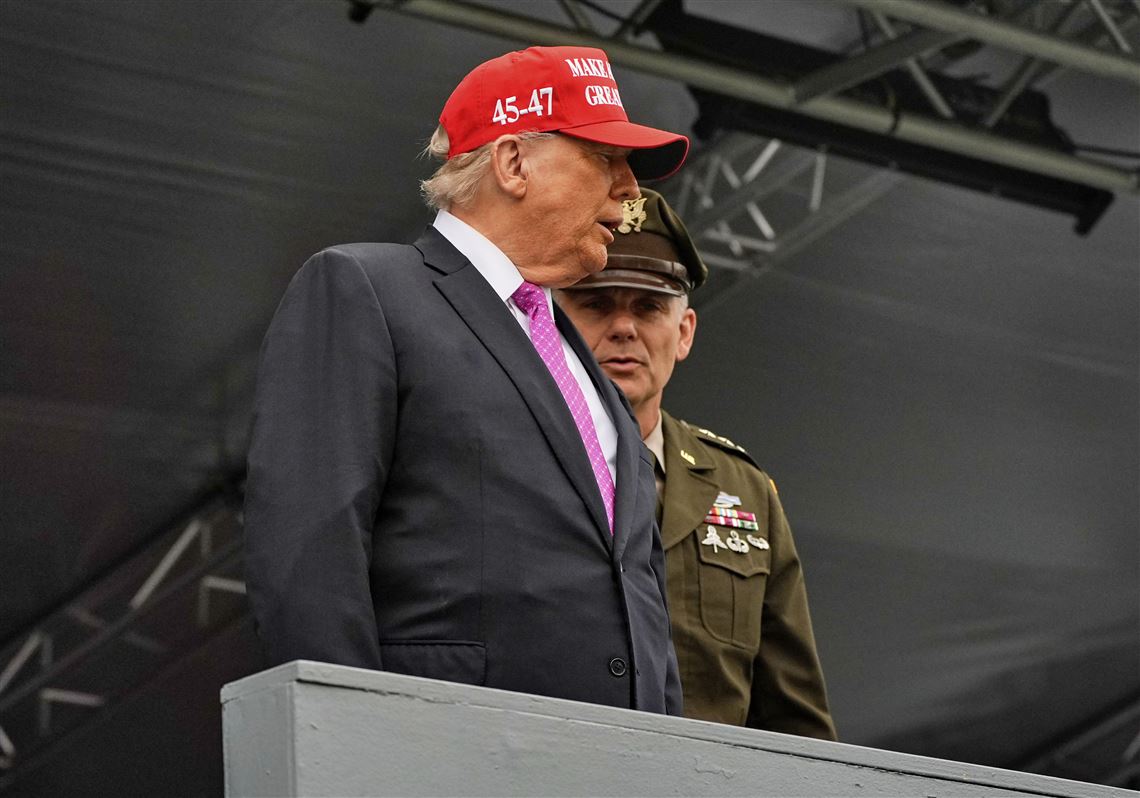Alwaght- Continuing his aggressive approach in foreign policy, the US President Donald Trump has ordered resuming nuclear tests after decades, signaling entry into a new Cold War between Washington and its global rivals like China and Russia.
This order, coming shortly after renaming Department of Defense to Department of War, indicates a resolute decision by the White House to embark on a more aggressive foreign policy.
At first glance, these two decisions appear to be a show of force. But a closer look reveals they are merely a grandstanding, designed to mask the structural weaknesses of a superpower whose real-world record, from Iraq and Afghanistan to Ukraine, is a failure story. It is as if, through these media and military maneuvers, the US is trying to distract the world from the bitter truth of its strategic bankruptcy. This report will investigate how this power-play is being staged within a reality of profound failure.
1. Power-play in the era of decline
Today, the US increasingly resembles a merchant who was once the wealthiest in the market, but now faces empty coffers and shattered credit. Yet, it desperately clings to the facade of a major, influential power, its former glory and authority long gone.
The gradual decline of its economy, a spiraling debt crisis, deep social fractures, and crumbling domestic political legitimacy are all chipping away at US's real power. As a result, maintaining its image as a superpower now relies primarily on media maneuvers and theatrical gestures.
Washington's recent behavior on the world stage, from its staged "peace" mediations in West Asia to its limited military operations against Iran, Venezuela, and the Axis of Resistance, is a direct reflection of this reality: a performance of power, playing out within a context of bankrupt reality.
2. Signs of power bankruptcy
Like in economy, bankruptcy in the politics happens when the costs of saving the credibility exceeds a government's actual capacity. In recent decades, various signs have shown themselves in relation to the US, the most important of them are:
Economic Decline: The national debt has surged past $35 trillion, while the US share of global GDP has shrunk to under 25 percent.
Eroded Military power: The chaotic retreat from Afghanistan, the ineffective management of the Ukraine crisis, and the diminished deterrence against the Iran-led Axis of Resistance all point to a fundamental operational weakness.
Crumbling Domestic Cohesion: A deep political schism, a crisis of electoral legitimacy, and a historic collapse of public trust in governmental institutions have plunged the nation into an internal crisis.
Confronted with this reality, the former superpower is increasingly forced to adopt low-cost, high-decibel policies in a desperate bid to stave off the complete collapse of its former image.
3. Low-cost maneuvers, a policy to save face
As a bankrupt businessman tries to save their face with small but noisy deals in the market, the US foreign is going the same path:
Temporary and selective sanctions: Sanctions have morphed from genuine tools of pressure into instruments of media posturing.
Limited military operations: Drone and missile strikes in Syria, Iraq, and Yemen are now primarily executed for their media impact rather than tangible strategic gains.
Staged diplomatic mediation: From the Trump administration's West Asia "peace" plans to the Biden administration's efforts in the Ukraine crisis, these are all attempts to project an American presence on a global stage from which its real influence is receding.
These measures are the political equivalent of a bankrupt company's publicity stunts, a desperate attempt to use theatrics to convince investors that the enterprise is still viable.
4. Covert costs and long-term consequences
Though these power-plays in the short run may clear an illusion of dominance, in the long run they can create devastating consequences:
The erosion of trust of allies: Nations like Saudi Arabia, Turkey, and even some European governments have concluded that Washington can no longer reliably uphold its security commitments.
The emboldenment of rivals: Recognizing the growing gap between US's real power and its theatrical displays, competitors like China, Russia, and Iran are expanding their spheres of influence.
The acceleration of global instability: Washington's hasty and unpredictable decisions are pushing the international order toward unmanageable chaos.
In effect, each new media show staged by the US represents another step closer to the erosion of its historical standing as a superpower.
5. End of an era
Today's US is like a bankrupt merchant who still is clinging on their fine clothes to hide their bankruptcy from their creditors. But reality will be disclosed soon or late. The reality is that Washington's political and moral assets have eroded and the era of its absolute hegemony has come to an end.
Ineffective sanctions, staged operations, and media maneuvers are nothing more than desperate attempts to keep alive the memory of a golden era. The world is fast entering an era of multipolar power balance, and the US, despite its noise, is no long the arch-player on the world stage.



























